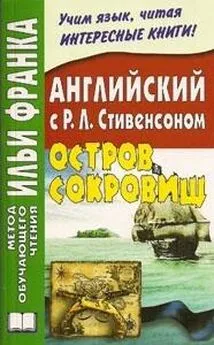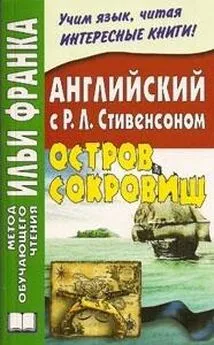Роберт Говард - Английский язык с Конаном-варваром
- Название:Английский язык с Конаном-варваром
- Автор:
- Жанр:
- Издательство:АСТ, Восток-Запад
- Год:2007
- Город:Москва
- ISBN:5-17-042032-3, 5-478-00503-7
- Рейтинг:
- Избранное:Добавить в избранное
-
Отзывы:
-
Ваша оценка:
Роберт Говард - Английский язык с Конаном-варваром краткое содержание
В книге предлагается произведения Роберта Е. Говарда, адаптированные (без упрощения текста оригинала) по методу Ильи Франка. Уникальность метода заключается в том, что запоминание слов и выражений происходит за счет их повторяемости, без заучивания и необходимости использовать словарь. Пособие способствует эффективному освоению языка, может служить дополнением к учебной программе. Предназначено для студентов, для изучающих английский язык самостоятельно, а также для всех интересующихся английской культурой.
Метод чтения Ильи Франка
Содержание:
Дочь ледяного великана
Проклятие монолита
Замок ужаса
За Черной рекой
Тени Замбулы
Английский язык с Конаном-варваром - читать онлайн бесплатно полную версию (весь текст целиком)
Интервал:
Закладка:
drew [dru: ], both [bəuƟ], already [ɔ: lˈredɪ]
"My lover is a — a young Turanian soldier. To spite me, Totrasmek gave him a drug that drove him mad. Tonight he snatched up a sword and came at me to slay me in his madness, but I fled from him into the streets. The Negroes seized me and brought me to this — what was that? "
Conan had already moved. Soundlessly as a shadow he drew her behind the nearest hut, beneath the straggling palms. They stood in tense stillness, while the low muttering both had heard grew louder until voices were distinguishable. A group of Negroes, some nine or ten, were coming along the road from the direction of the city. The girl clutched Conan's arm and he felt the terrified quivering of her supple body against his.
Now they could understand the gutturals of the black men (теперь они могли понять гортанные звуки черных).
"Our brothers are already assembled at the pit," said one (наши братья уже собрались у ямы, — сказал один). "We have had no luck (нам не повезло: «мы имели никакой удачи»). I hope they have enough for us (я надеюсь, они имеют достаточно для нас = у них хватит для нас )."
"Aram promised us a man," muttered another, and Conan mentally promised Aram something (Арам обещал нам мужчину, — проворчал другой, и Конан мысленно пообещал Араму кое-что).
"Aram keeps his word," grunted yet another (Арам держит свое слово, — пробурчал еще один). "Many a man we have taken from his tavern (много людей мы взяли из его таверны). But we pay him well (но мы платим ему хорошо). I myself have given him ten bales of silk I stole from my master (я сам дал ему десять тюков шелка, /которые/ я украл у моего хозяина). It was good silk, by Set (это был хороший шелк, /клянусь/ Сетом)!"
luck [lʌk], could [kʋd], word [wə: d]
Now they could understand the gutturals of the black men.
"Our brothers are already assembled at the pit," said one. "We have had no luck. I hope they have enough for us."
"Aram promised us a man," muttered another, and Conan mentally promised Aram something.
"Aram keeps his word," grunted yet another. "Many a man we have taken from his tavern. But we pay him well. I myself have given him ten bales of silk I stole from my master. It was good silk, by Set!"
The blacks shuffled past (черные прошаркали мимо), bare splay feet scuffing up the dust (поднимая пыль босыми косолапыми ногами), and their voices dwindled down the road (и их голоса замирали дальше по дороге; to dwindle — сокращаться, уменьшаться, убывать, истощаться ).
"Well for us those corpses are lying behind these huts," muttered Conan (хорошо для нас, /что/ те трупы лежат за этими хижинами, — пробормотал Конан). "If they look in Aram's death room they'll find another (если они заглянут в комнату смерти Арама, они найдут еще одного). Let's begone (давай убираться; begone — прочь! убирайся! )."
"Yes, let us hasten!" begged the girl, almost hysterical again (да, давай поспешим! — умоляла девушка, почти в истерике снова). "My lover is wandering somewhere in the streets alone (мой любовник бродит где-то по улицам один). The Negroes may take him (негры могут взять его)."
"A devil of a custom this is (хорошенький обычай /это/)!" growled Conan, as he led the way toward the city (взревел Конан, когда он возглавил путь к городу), paralleling the road but keeping behind the huts and straggling trees (идя параллельно дороге, но держась за хижинами и беспорядочно растущими деревьями; to straggle — быть беспорядочно разбросанным ). "Why don't the citizens clean out these black dogs (почему горожане не устранят этих черных собак)?"
past [pɑ:st], find [faɪnd], room [ru: m]
The blacks shuffled past, bare splay feet scuffing up the dust, and their voices dwindled down the road.
"Well for us those corpses are lying behind these huts," muttered Conan. "If they look in Aram's death room they'll find another. Let's begone."
"Yes, let us hasten!" begged the girl, almost hysterical again. "My lover is wandering somewhere in the streets alone. The Negroes may take him."
"A devil of a custom this is!" growled Conan, as he led the way toward the city, paralleling the road but keeping behind the huts and straggling trees. "Why don't the citizens clean out these black dogs?"
"They are valuable slaves," murmured the girl (они ценные рабы; value — стоимость, ценность ). "There are so many of them that might revolt if they were denied the flesh for which they lust (есть так много их них, которые, возможно, восстали, если бы им отказали в мясе, которого они сильно желают). The people of Zamboula know they skulk the streets at night (люди Замбулы знаю, /что/ они крадутся по улицам ночами), and all are careful to remain within locked doors (и все осторожны, /чтобы/ оставаться = и остаются за запертыми дверями), except when something unforseen happens, as it did to me (за исключением /того/, когда случается нечто непредвиденное, как это делало = случилось со мной). The blacks prey on anything they can catch, but they seldom catch anybody but strangers (черные охотятся на все, /что/ они могут поймать, но они редко ловят кого-нибудь кроме иноземцев).
The people of Zamboula are not concerned with the strangers that pass through the city (людям Замбулы нет дела до чужеземцев, которые проезжают через город; to be concerned with — беспокоиться о чем-л., быть озабоченными чем-л. ).
valuable [ˈvæljuəbl], careful [ˈkɛəfʋl], skulk [skʌlk]
"They are valuable slaves," murmured the girl. "There are so many of them that might revolt if they were denied the flesh for which they lust. The people of Zamboula know they skulk the streets at night, and all are careful to remain within locked doors, except when something unforseen happens, as it did to me. The blacks prey on anything they can catch, but they seldom catch anybody but strangers. The people of Zamboula are not concerned with the strangers that pass through the city.
"Such men as Aram Baksh sell these strangers to the blacks (такие люди, как Арам Бахш, продают чужеземцев черным). He would not dare attempt such a thing with a citizen (он бы не осмелился попробовать /сотворить/ такую вещь = такое с горожанином)."
Conan spat in disgust (Конан сплюнул в отвращении; to spit ), and a moment later led his companion out into the road which was becoming a street (а секунду спустя вывел свою спутницу на дорогу, которая становилась улицей), with still, unlighted houses on each side (с тихими неосвещенными домами на каждой стороне = по обеим сторонам ). Slinking in the shadows was not congenial to his nature (красться в тени было неподобающим его натуре).
"Where did you want to go?" he asked (куда ты хотела идти? — спросил он). The girl did not seem to object to his arm around her waist (девушка, казалась, не возражает его руке вокруг ее талии = чтобы его рука обнимала ее за талию ).
would [wʋd], citizen [ˈsɪtɪzn], congenial [kənˈʤi: njəl]
"Such men as Aram Baksh sell these strangers to the blacks. He would not dare attempt such a thing with a citizen."
Conan spat in disgust, and a moment later led his companion out into the road which was becoming a street, with still, unlighted houses on each side. Slinking in the shadows was not congenial to his nature.
"Where did you want to go?" he asked. The girl did not seem to object to his arm around her waist.
"To my house, to rouse my servants," she answered (в мой дом, поднять моих слуг, — ответила она). "To bid them search for my lover (приказать им разыскать моего любовника). I do not wish the city — the priests — anyone — to know of his madness (я не желаю, /чтобы/ город — жрецы — кто-либо — знал о его безумстве). He — he is a young officer with a promising future (он молодой офицер с многообещающим будущим; to promise — обещать ). Perhaps we can drive this madness from him if we can find him (возможно, мы сможем вывести это сумасшествие из него, если /мы/ сможем найти его)."
"If we find him?" rumbled Conan (если мы найдем его? — прогремел Конан). "What makes you think I want to spend the night scouring the streets for a lunatic (что заставляет тебя думать = с чего ты взяла , /что/ я хочу провести ночь, обыскивая улицы ради лунатика)?"
servant [ˈsə: vənt], answer [ɑ:nsə], search [sə: ʧ]
"To my house, to rouse my servants," she answered. "To bid them search for my lover. I do not wish the city — the priests — anyone — to know of his madness. He — he is a young officer with a promising future. Perhaps we can drive this madness from him if we can find him."
"If we find him?" rumbled Conan. "What makes you think I want to spend the night scouring the streets for a lunatic?"
She cast a quick glance into his face, and properly interpreted the gleam in his blue eyes (она бросила быстрый взгляд на его лицо и надлежащим образом истолковала огонь в его голубых глазах; to cast — бросать ). Any woman could have known that he would follow her wherever she led — for a while, at least (любая женщина могла бы узнать, что он будет следовать за ней, куда бы она ни повела — по крайней мере, некоторое время; to lead — вести ). But being a woman, she concealed her knowledge of that fact (но будучи женщиной, она скрыла /ее/ знание этого факта).
"Please," she began with a hint of tears in her voice, "I have no one else to ask for help — you have been kind — (пожалуйста, — начала она с намеком слез = со слезами в /ее/ голосе, — я имею никого больше, /чтобы/ попросить о помощи = мне некого больше просить о помощи — ты был добр)"
Читать дальшеИнтервал:
Закладка:







